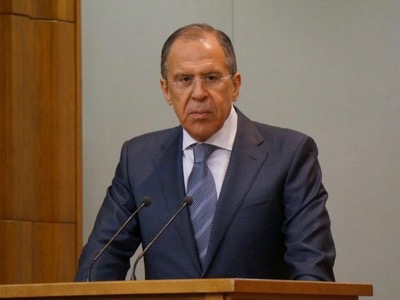
The Berlin Conference on Libya, which lasted about five hours, is over. It took rather long, about four months, to prepare it. It was preceded by five rounds of consultations at the level of senior officials. This resulted in the preparation of a detailed document that contains recommendations on ways to overcome the ongoing Libyan crisis. This document is divided into chapters, one of which has to do with efforts in the sphere of security and stipulates measures for attaining a lasting ceasefire. There is also a chapter on the political process and one on settling Libya’s economic problems so as to ensure that all its religious, ethnic and political groups have access to the country’s natural wealth. There is also a chapter on humanitarian problems and human rights, as well as on the support which the international community led by the United Nations (UN) should give to all of these processes.
Russia was involved in these preparations from the very beginning. We attended all the five preparatory rounds. It was at our insistence that the conference organisers abandoned their initial idea of meeting without the Libyan parties. Invitations to the conference were sent to the Libyan leaders – Prime Minister of the Government of National Accord Fayez Mustafa al-Sarraj and Commander of the Libyan National Army Marshal Khalifa Haftar. It was at our initiative as well that the range of participants from among Libya’s neighbours was expanded, because their interests must be protected and their views are extremely important for lasting agreements.
The third element on which we insisted was that the conference documents reproduce, clearly and unambiguously, the key provisions of the UN Security Council resolutions on Libya, primarily the provisions on the absence of a military solution and the importance of achieving a settlement through the efforts of the Libyans themselves without any foreign interference.
We managed to formulate the final statement of the conference so that all the practical recommendations and proposals that should be adopted have been approved by the Libyan parties.
Of course, the document emphasised the role of the UN Security Council, to which the document will be submitted for analysis, consideration and approval.
President of Russia Vladimir Putin put forth our position and pointed out that the Libyans’ opinion would be taken into account when the Berlin conference’s recommendations were discussed at the UN Security Council. This opinion should be expressed clearly before the UN Security Council starts working on the document.
The situation is difficult. The Libyan parties have made a small step forward since the January 13 meeting held in Moscow. They have agreed to send five delegates each to a military committee that will be established at the UN’s initiative to discuss all issues related to the ceasefire. As you know, the ceasefire brokered by Russia and Turkey took effect after midnight on January 12. Today we agreed that the ceasefire was largely respected, although there have been violations on both sides. The countries that can influence the situation on the ground in Libya pledged today to abstain from any steps that could provoke the Libyan parties into resuming full-scale hostilities, and said that they would encourage compliance with and consolidation and strengthening of the ceasefire.
The military committee comprising five representatives each of Fayez al-Sarraj and Khalifa Haftar will work under UN supervision to coordinate practical confidence-building measures for a more permanent ceasefire.
Overall, we believe that the conference was very useful. It is clear that the final decision will be made by the Libyans themselves. And it is clear that a serious and sustainable dialogue between the Libyan parties is so far impossible because of the vast differences between them. At the same time, the recommendations and proposals sealed in the final document of the Berlin conference will complement the list of international initiatives aimed at encouraging the Libyan parties to coordinate the conditions for launching talks and reaching agreements.
Thank you.

 Articles by this author
Articles by this author











Stay In Touch
Follow us on social networks
Subscribe to weekly newsletter